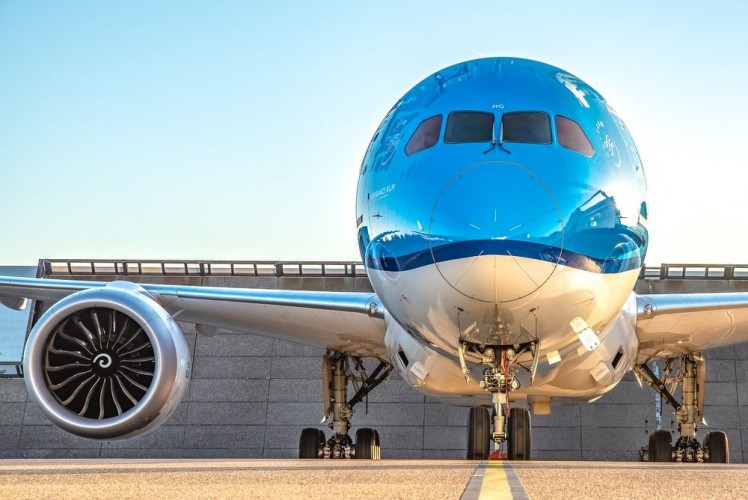(IN SHORT) Despite posting strong first-quarter revenues of €2.7 billion, the KLM Group faced an operational loss of €290 million. Factors such as low seasonality, rising costs, and below-par fleet deployability in January and February contributed to the loss. To address these challenges, KLM is focusing on stabilizing operations by redistributing maintenance work, doubling pilot training capacity, and hiring additional aircraft. However, ongoing worldwide supply chain problems have affected aircraft maintenance, leading to longer hangar times and increased leasing costs. Additionally, increased labour costs and disruptions due to geopolitical conflicts further impacted the airline’s financial performance. To improve profit margins and reduce unit costs, KLM plans to assess and potentially suspend indirect positions and reconsider investments. Despite the financial challenges, KLM remains committed to achieving cleaner, quieter, and more efficient operations while responding to evolving market dynamics.
(PRESS RELEASE) Amstelveen, Netherlands, 2024-Apr-30 — /Travel PR News/ — The KLM Group posted first-quarter revenues of €2.7 billion against an operational loss of €290 million. Traditionally, the first quarter is low season for the airline industry. Costs are also rising. What’s more, fleet deployability was below par in January and February. Measures taken to resolve this resulted in an improvement in March. KLM also had to deal with particularly bad weather on several days in January and February, which meant we had to rebook customers on other flights.
“People want to fly KLM. We’re grateful for that. For us, the concrete task of stabilising operations is paramount. We’re addressing the shortage of engineers by redistributing maintenance work and recruitment. And we’ve doubled training capacity for pilots. We’re making up for reduced fleet deployability by hiring in additional aircraft. Adopting these measures already showed results in March. The first-quarter loss makes it all the more important to focus on reducing costs. We’ve taken additional, substantial measures to achieve this. KLM will stay on course and remains committed to achieving cleaner, quieter and more efficient operations.”, KLM President & CEO Marjan Rintel
KLM did however generate strong first-quarter revenues, showing that people still want to travel. In the first quarter of 2024, KLM and Transavia operated 94% of the capacity target.
Fleet deployability was below par. Aircraft needed to spend longer in the hangar waiting for parts, affected by ongoing worldwide supply chain problems. KLM had to hire aircraft to accommodate the longer maintenance time, while the cost of concluding and extending aircraft leases has risen significantly due to global shortages. The costs associated with compensating and caring for passengers affected by disruptions can be added to this. KLM is also facing increased labour costs due to the collective agreements concluded last year, while we are not yet able to operate the corresponding capacity.
KLM has hired in more engineers and new pilots to catch up after the coronavirus pandemic, partly because additional pilots are needed in the cockpit on certain routes to Asia due to overflights to avoid Russia and the conflict in the Middle East.
KLM carried 7.5 million passengers in the first quarter. Transavia welcomed 1.8 million passengers on board.
Transavia generated greater revenues than in the first quarter of 2023. At the same time, like KLM, Transavia is facing rising costs. The engineering & maintenance division (E&M) also reported increased revenues in the first quarter, while cost increases remained almost unchanged. Cargo demand remained stable while revenues faced pressure.
“To achieve our ambitions, we need to improve our profit margin and reduce unit costs. The first-quarter results have brought pressure to bear on our financial position and therefore make these additional measures necessary. In a drive to reduce labour costs, we’ll be critically assessing indirect positions and suspending or discontinuing them wherever possible. We will also be scrutinising and reconsidering investments where necessary.”, KLM CFO Bas Brouns
Media Contact:
Email: mediarelations@klm.
Source: KLM
###

